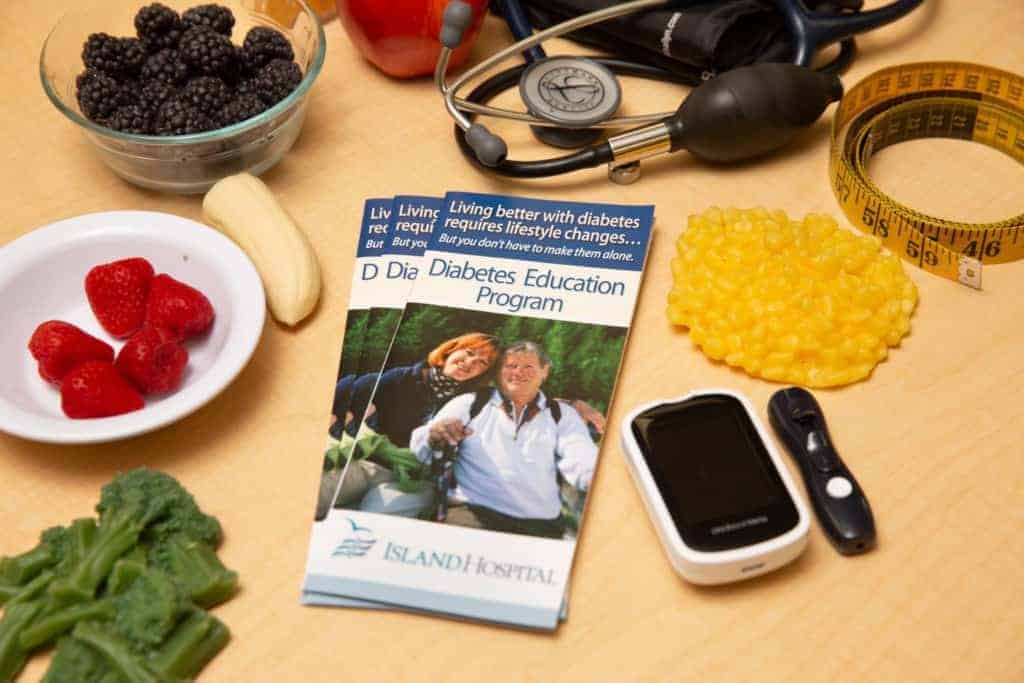Diabetes Awareness: What is Diabetes Distress?

Life can be overwhelming. Many juggle a daily list of endless “to-do’s”: take the kids to school, fold the laundry, walk the dog, make dinner and pick-up groceries. It can be exhausting just being human. Add a chronic disease like diabetes to an already busy schedule, and it can be downright stressful.
When someone has diabetes they are tasked with balancing the challenges of regular life, along with all the responsibilities of their disease. This includes watching their diet, exercising, taking medications, checking blood sugars and regularly seeing their healthcare team. These are all healthful habits to successfully manage diabetes, but can be overwhelming and when life is hectic, diabetes distress can set in.
Diabetes distress is when the juggling of life and diabetes becomes too much. It happens when the sadness, anger, fatigue or frustration one may feel about diabetes gets in the way of taking care of their health. Diabetes distress can lead to “burn out” which can potentially lead to unmanaged diabetes, high blood sugars and unfortunate health complications.
The following thoughts are signs of diabetes distress:
“I don’t want to check my blood sugars because they are always high.”
“I stopped taking my medication. It doesn’t seem to help anyway.”
“I am not going to see my doctor or dietitian because I know my blood sugars are bad.”
According to the Centers for Disease Control (CDC), in any 18 month period 33-50% of people with diabetes experience diabetes distress.
Here are five steps to help overcome diabetes distress:
- Tell your healthcare team. They can brainstorm ways to better manage the stress of diabetes.
- Join a support group or talk to others with diabetes. Click here to find resources for online diabetes communities.
- Be kind to yourself. Remember, no one gets diabetes 100% right.
- Make an intentional plan to take a SAFE break from some of your diabetes “duties.” For example, reduce the number of blood sugar checks.
- Set boundaries with others who may be trying to help you with lifestyle change, but are unintentionally causing more stress.
Know that diabetes is manageable with help. Balancing the challenges of life can be tough, but working together with your healthcare provider and a diabetes educator can make it a little easier.
To learn more about diabetes distress, check out the CDC and the Association of Diabetes Care and Education Specialist resources.
For more information about the Diabetes Education Program at Island Health visit: https://islandhealths.wpengine.com/diabetes-education/. To schedule an appointment, call
360.299.4934.
 Amanda Lungren, RDN, CDCES is a diabetes educator and clinical dietitian. Lungren’s keen interest in nutrition, science and culture led her to pursue a Bachelor of Science degree in Nutrition and Kinesiology at the University of Las Vegas, Nevada. Lungren is a Certified Diabetes Care and Education Specialist (CDCES) and holds training certificates in Diabetes Prevention, Childhood and Adolescent Weight Management, and Adult Weight Management, all of which are recognized by the Centers for Disease Control.
Amanda Lungren, RDN, CDCES is a diabetes educator and clinical dietitian. Lungren’s keen interest in nutrition, science and culture led her to pursue a Bachelor of Science degree in Nutrition and Kinesiology at the University of Las Vegas, Nevada. Lungren is a Certified Diabetes Care and Education Specialist (CDCES) and holds training certificates in Diabetes Prevention, Childhood and Adolescent Weight Management, and Adult Weight Management, all of which are recognized by the Centers for Disease Control.
When Lungren isn’t working, she keeps busy practicing yoga, biking, dancing or paddle boarding. She enjoys spending time with her family and taking care of their six chickens, two dogs and one rooster—fingers crossed for a goat next year.
To schedule an appointment with Lungren, please call 360.299.4934 or visit islandhealth.org/our-providers/amanda-lungren-rdn-cdces/
Published on November 1, 2021
